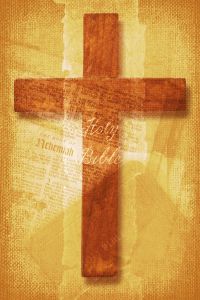 Scripture: Lectionary # 190. Isaiah 45:6-8.18. 21-25. Psalm
Scripture: Lectionary # 190. Isaiah 45:6-8.18. 21-25. Psalm
85:9-10.11-1213-14. Luke 7:18-23
Messianic messages are given to us each day during this holy season of
Advent. Today we hear a title for the Messiah that John the Baptist uses
while sending his envoys (disciples) to see whether Jesus is the Messiah or
as he says it, "He who is to come." During the first century amidst so
much diversity of religious convictions, the waiting for a Messiah was
common to many of the sects of Judaism and to the new branch off the root
of David's tree--the Christians. The Samaritans, the priests and
Pharisees, John the Baptist, the apostles, the Dead Sea Scroll community,
the Zealots,all had high expectations of a Messiah. We have been aware of
this in our readings from Isaiah and in our bible knowledge of the first
century in which Jesus lived.
The Fourth Gospel of John gives us the background for the Samaritan belief
that the messiah would be a prophet similar to what John is saying he would
be the one who is to come. We learn much about the Samaritans from the
woman at the well. The Dead Sea group thought of the Messiah as being both
a prophet and a king or two separte messiahs. Perhaps, the Teacher in the
scrolls was the Messiah?
John the Baptist continues to be remembered during this season of Advent.
He heard of the doings of Jesus, that is, his many cures. He was becoming
aware that Jesus might be the "one who is to come." This is confirmed
while he is in prison; his disciples relay what they have heard from Jesus
so he now knows Jesus is the Messiah.
Our own longings and searching for Jesus during this Advent help us to join
the first century expectations as we come closer to the actual celebration
of Jesus' birth in Bethlehem. We are more intent in our prayers in
expressing our joy at the thought of Christmas. Creches or nativities
appear in many yards and under many of the Christmas trees to show visibly
our love and longing for the Christ during this season and of course our
liturgies nourish us with the thought of the Messiah's approach.
Many of a certain age recall all of the customs at Christmas, the sending
of Christmas cards, the carol singings, the gift wrapping and the way we
were prepared by both the parish and the sisters for the coming of Christ
the Messiah. These traditions help us foster that longing and desire to
see the Christ child in his mother's arms.
Another word that helps us with this expectation is the Palestinian Aramaic
expression MARANATHA. It is an eschatological and liturgical word that
stems from the Jewish Christian community in Jerusalem and is associated
with the Eucharist. It is often attached to our prayer services and
Vespers. Paul gives us the word in I Corinthians 16:22; it is also found in
translated Greek in Revelation 22:20 where we see the coming of the Messiah
at the end time and in glory. The Didache is aware of the expression in
Didache 10:6. Our exegetes tell us that it can be translated in two ways:
"Marana tha" or "Maran atha" the former meaning "The Lord has Come" and the
latter "Come, our Lord." Both are eschatological. The first is realized
eschatology; the second future eschatology. The fact that it is linked to
the liturgy makes it also an ecclesial insight into Christ as Messiah in
the Eucharist and the content of the word itself is Christological. The
important thing is not all of this knowledge about it but rather how it
helps us to relate more closely to Jesus who is to be born of the Virgin
Mary. Maranatha, Come, Lord Jesus, Come! Amen.
About the Author

Guest
We welcome guest contributors who graciously volunteer their writing for our readers. Please support our guest writers by visiting their sites, purchasing their work, and leaving comments to thank them for sharing their gifts here on CatholicMom.com. To inquire about serving as a guest contributor, contact editor@CatholicMom.com.


.png?width=1806&height=731&name=CatholicMom_hcfm_logo1_pos_871c_2728c%20(002).png)
Comments